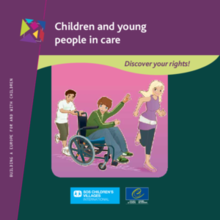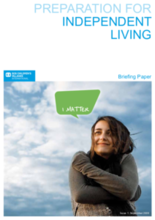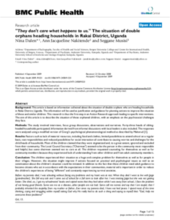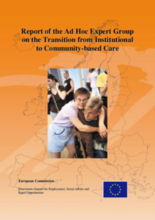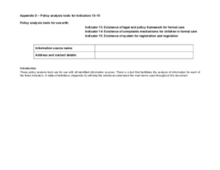Demographic Data
|
Sources: World Bank, UNICEF, UNDP HDR 2015, DHS 2013 |
Displaying 13421 - 13430 of 14555
This paper describes CARE Rwanda’s Nkundabana model, which mobilizes adult volunteers from the community to provide guidance and care for children living in households without adult support, and discusses lessons learned.
This paper reports research on outcomes of long term foster care from an eight year longitudinal study of foster care placements in Australia.
Youth-friendly information booklet addressed to children and young people in alternative care.
First briefing paper of series, aims to share good practices and information exchange on preparation for leaving care and after care support
Summary of conference declarations and recommendations prepared by over 400 conference participants emphasizing the crucial importance of family based care for children without parental care.
This article is based on information collected about the situation of double orphans who are heading households in Rakai District, Uganda.
This Report was drafted by a group of independent experts convened by Commissioner of the European Commission, Vladimír Špidla, in February 2009 to address the issues of institutional care reform in their complexity. The report addresses recommendations to Member States which have the main responsibility for action in this area.
The Manual for the Measurement of Indicators for Children in Formal Care is manual to assist countries in strengthening their information system around children in formal care through data collection around 15 global indicators.
Policy/analysis tools for manual to assist countries in strengthening their information system around children in formal care through data collection around 15 global indicators
Manual to assist countries in strengthening their information system around children in formal care through data collection around 15 global indicators


